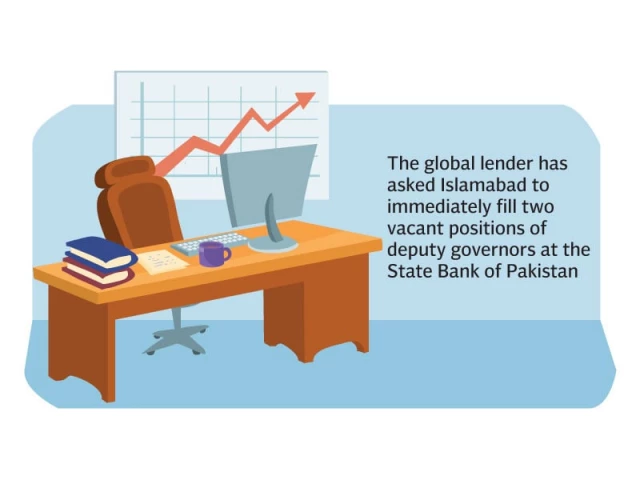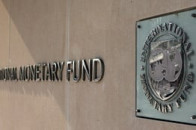IMF seeks changes to SBP Act
Lender pushes for removing finance secretary from board, filling vacant posts

The International Monetary Fund (IMF) has asked Pakistan to remove the finance secretary from the board of the central bank and also recommended amending another law to take away the federal government's authority to order inspections of commercial banks.
The global lender has further asked Islamabad to immediately fill two vacant positions of deputy governors at the State Bank of Pakistan (SBP).
Sources said the IMF has recommended another amendment to the SBP Act to remove the finance secretary from the board of directors. This would be the second attempt to exclude the federal secretary in the past three years.
The IMF's recommendations, part of the Governance and Corruption Diagnosis Mission report, appear aimed at completely ending federal government oversight, despite the government being the 100% shareholder of the SBP.
In 2022, under IMF pressure, the government gave absolute autonomy to the SBP and removed the finance secretary's voting rights on the board.
According to the existing law, the finance secretary is a board member "without the right to vote." Key decisions such as exchange rate determination or interest rate setting are not made by the SBP board but by the monetary policy committee.
Finance Minister Muhammad Aurangzeb said on Monday that the government has no role in setting interest rates, which fall under SBP's mandate. He added that the exchange rate would continue to be determined by the market. The rupee further appreciated on Monday to Rs282 per dollar.
Aurangzeb said the IMF's review mission would soon arrive under the ongoing 37-month programme. The mission is expected in the third week of September for talks on the third loan tranche of $1 billion.
The IMF has argued that removing the vote-less secretary from the SBP board would further strengthen independence at an already highly autonomous central bank. However, sources said the government has not yet accepted the IMF's recommendation, and discussions remain open.
The SBP board includes the governor and eight non-executive directors, with at least one from each province. The board oversees SBP operations, administration, and management and has full access to the bank's activities.
The IMF has also recommended that Pakistan publish the reasons for the removal of governors, deputy governors, non-executive directors, and monetary policy committee members, sources added.
The lender has also pressed for immediately filling the two vacant deputy governor posts to ensure collective decision-making at the central bank. Of three sanctioned positions, only one is filled. Saleem Ullah is currently deputy governor for finance, inclusion, and innovation.
No regular deputy governor is in place for the most important matters, including banking, exchange rate, and monetary policy etc. Former deputy governor Dr Inayat Husain has been serving in an acting capacity since his tenure ended in November last year. His dual nationality has created hurdles in his reappointment. The prime minister has already constituted a committee to explore amending the law to allow dual nationals to serve as deputy governors.
The finance ministry had earlier suggested several amendments to the SBP Act, including one allowing dual nationals to be appointed deputy governors. The law ministry has already vetted the proposals.
By law, deputy governors must be appointed by the federal government after consultation between the finance minister and the SBP governor, from a panel of three candidates recommended by the governor in order of merit.
Sources said the name of Nadeem Lodhi had been finalised for one of the two vacant posts, but cabinet approval has not yet been secured.
The SBP law requires that vacancies for governor, deputy governors, non-executive directors, and external members of the monetary policy committee be filled within 30 days. The federal government violates this requirement. The IMF has now recommended that such positions should never remain vacant for extended periods.
Sources said the IMF has also suggested amending the Banking Companies Ordinance of 1962 to end the federal government's power to instruct the SBP to inspect commercial banks. The proposal is aimed at ensuring further independence for the central bank.
Section 40 of the Banking Companies Ordinance currently states that the SBP may, at any time, and on being directed by the federal government, must inspect any banking company and its accounts.




















COMMENTS
Comments are moderated and generally will be posted if they are on-topic and not abusive.
For more information, please see our Comments FAQ